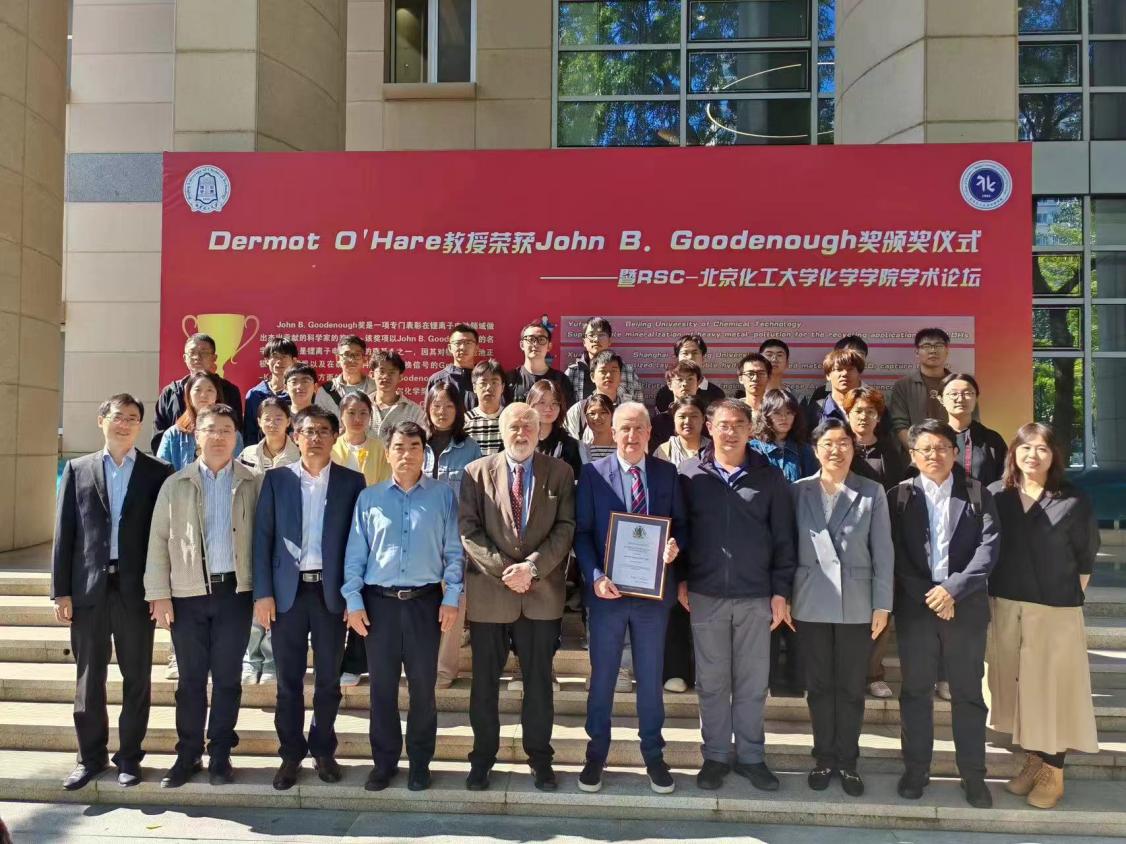On the morning of October 11th, the award ceremony for Professor Dermot O'Hare receiving the John B. Goodenough Award, along with the RSC - BUCT School of Chemistry Academic Forum, was held in the second-floor lecture hall of the conference center at the East Campus. The event was chaired by Professor Han Jingbin, the vice dean of the School of Chemistry. Guests included David G. Evans, chairman of the Royal Society of Chemistry Beijing Local Section and a professor at BUCT, Professor Dermot O'Hare from the University of Oxford, Professor Wang Qiang from Beijing Forestry University, Professor Zhang Xin from BUCT, Professor Zhao Yufei from BUCT, Professor Li Shuangde from the Institute of Process Engineering, Chinese Academy of Sciences, and Associate Professor Zhu Xuan from Shanghai Jiao Tong University.The main agenda of the event included the academic forum and the John B. Goodenough Award ceremony.
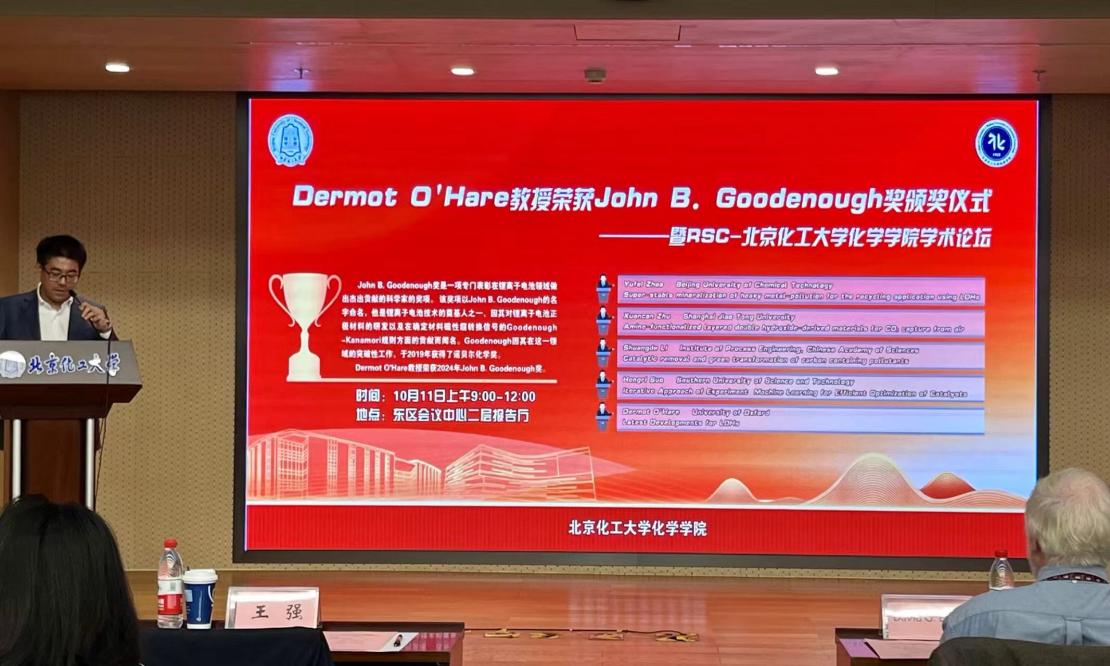
Firstly, during the academic forum, four experts gave keynote speeches. Professor Zhao Yufei from BUCT presented on "Super-stable mineralization of heavy metal pollution for recycling applications using LDHs"; Associate Professor Zhu Xuan from Shanghai Jiao Tong University spoke on "Amine-functionalized layered double hydroxide-derived materials for CO2 capture from air"; Professor Li Shuangde from the Institute of Process Engineering shared "Catalytic removal and green transformation of carbon-containing pollutants"; and Professor Suo Hongri from the Southern University of Science and Technology introduced "Iterative Approach of Experiment−Machine Learning for Efficient Optimization of Catalysts". After the presentations, teachers and students engaged in lively discussions, creating a rich academic atmosphere.
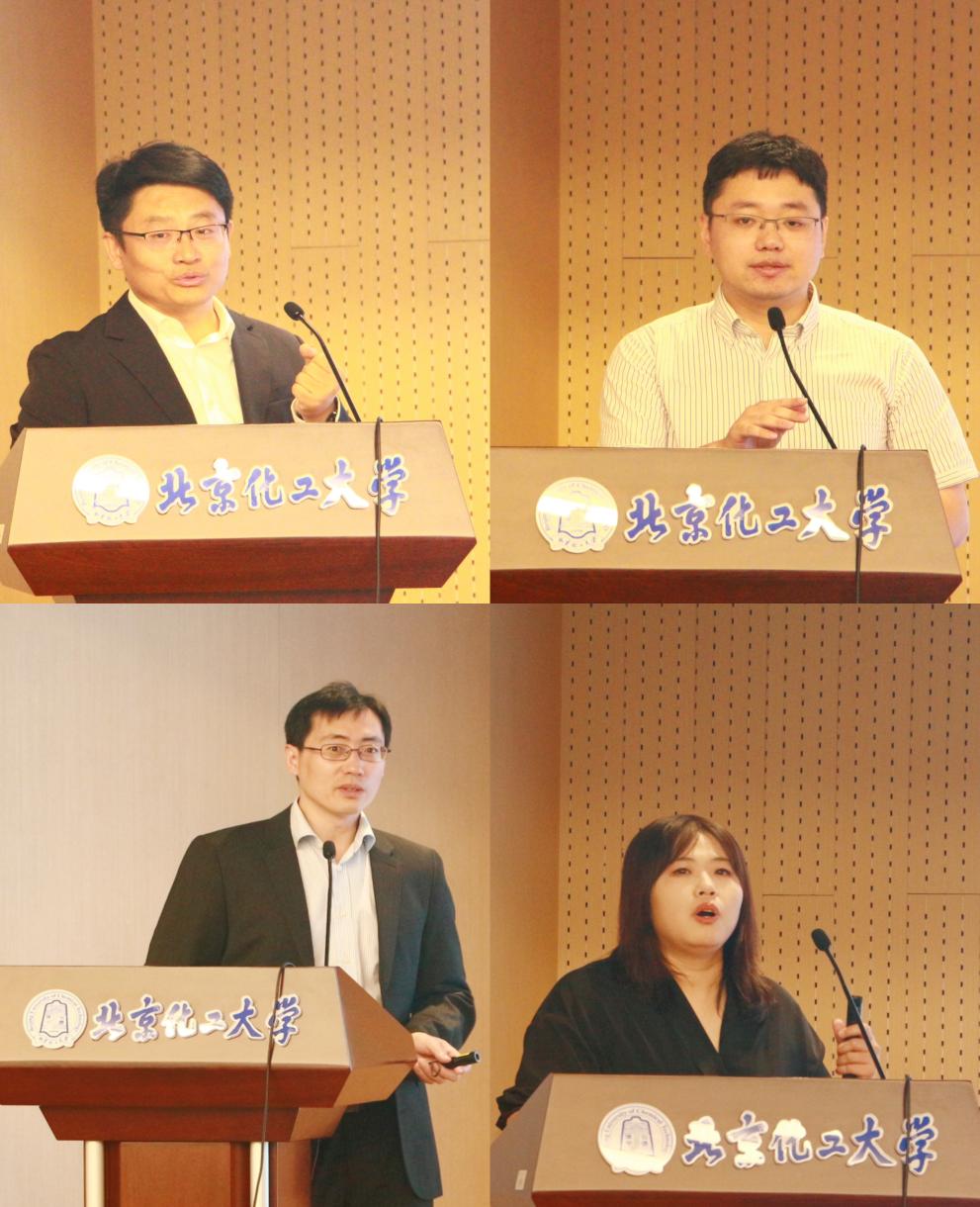
Before the award ceremony, Vice Dean Han Jingbin introduced the John B. Goodenough Award. Named after one of the pioneers of lithium-ion battery technology, John B. Goodenough, the award recognizes his contributions to the development of lithium-ion battery cathode materials and the Goodenough-Kanamori rules for magnetic superexchange in materials. His pioneering work earned him the 2019 Nobel Prize in Chemistry. The John B. Goodenough Award not only honors the recipient's scientific achievements but also their dedication to advancing science and technology. Receiving this award signifies the recipient's innovative spirit and significant scientific contributions throughout their career.
Professor Dermot O'Hare from the University of Oxford is a globally recognized expert in intercalation chemistry, porous and layered materials, and hydrothermal synthesis of metal-organic functional materials. He has published over 400 SCI papers and received numerous honors, including being named one of the "Top 50 Young European Scientists" by the French Academy of Sciences and receiving the Ludwig Mond Prize from the Royal Society of Chemistry in 2010. The 2024 John B. Goodenough Award was presented to Professor Dermot O'Hare in recognition of his pioneering new concepts in materials chemistry, catalysis, and nanomaterials, as well as his outstanding contributions to promoting their application and commercialization in sustainable technologies.
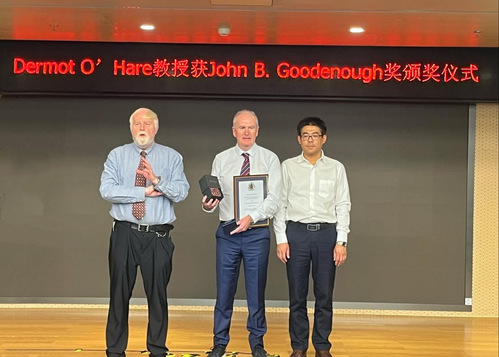
Professor David G. Evans, chairman of the Royal Society of Chemistry Beijing Local Section, presented the honor certificate to Professor Dermot O'Hare on behalf of the Royal Society of Chemistry and extended his congratulations. After the award ceremony, Professor Dermot O'Hare delivered an exciting report titled "Latest Developments for LDHs," sharing the latest research progress of his team on LDHs with the attendees. Following the report, students actively participated in discussions and interacted with Professor Dermot O'Hare.
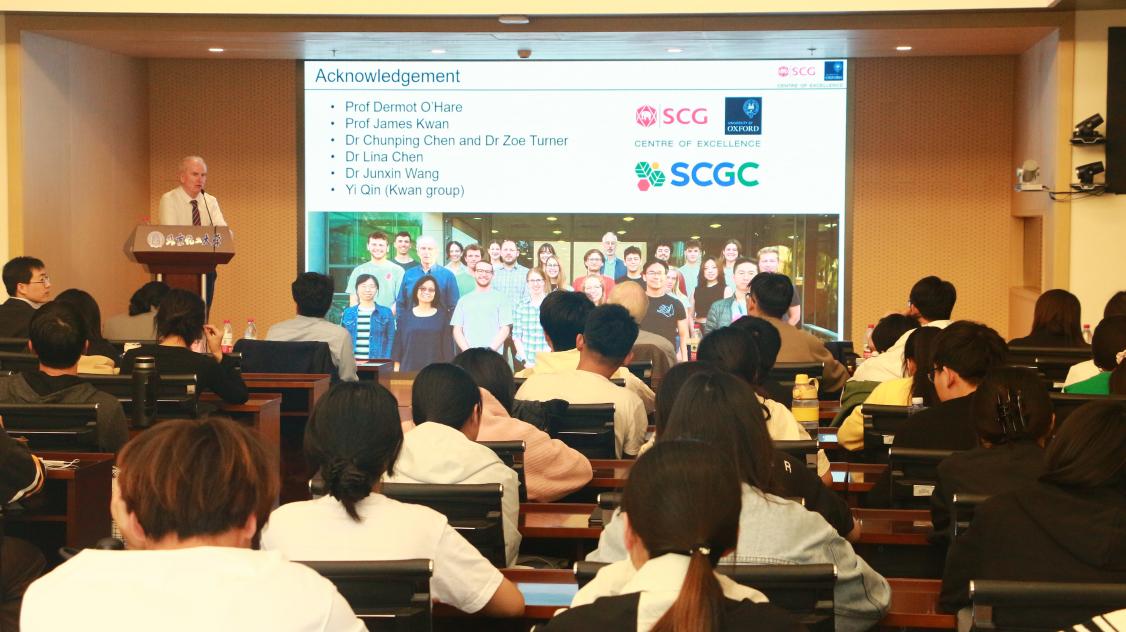
At the end of the event, Vice Dean Han Jingbin expressed his gratitude to all the speakers for their wonderful presentations, paid tribute to the organizers for their hard work, and thanked all the students for their active participation and attention.Students expressed that they gained a lot from this event. They not only broadened their horizons in this feast of knowledge but also deeply felt the charm and value of academia. They stated that they would actively participate in such events in the future, continuously improve their professional quality, and lay a solid foundation for their future development.
